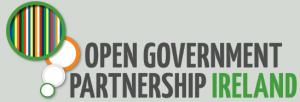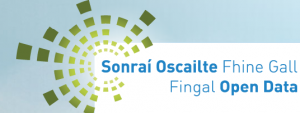Republic of Ireland’s Open Data Strategy: Observations and Recommendations
Tracey P. Lauriault, Programmable City Project, NIRSA, National University of Ireland Maynooth, County Kildare, Republic of Ireland
The Programmable City Working Paper 3 (Complete Working Paper is available here)
Executive Summary
Working Paper 3 of the Programmable City Project is a response to the Republic of Ireland’s Department of Public Expenditures and Reform (DPER) Open Data launch and the reports produced by Insight at the National University of Ireland Galway (NUIG), who were awarded the contract from a government call for tender (CfT). The Working Paper provides background context to the open data plan and critically considers governance; infrastructure; records management as well as information management and information technology (IM/IT); Legal, policy and ethical frameworks; public engagement; data curation; data dissemination and publication, and evaluation. The Paper proposes reconceptualizing open data as a function of government record keeping, information management, shared services and national spatial data infrastructures as opposed to a standalone program. By doing so, it is suggested, open data simply becomes a good governance strategy and by integrating it into broader government administration information management provides it with sustainability, especially if it becomes a normalized data dissemination strategy and a public engagement mechanism. The Working Paper also includes a number of recommendations for consideration in addition to or to complement those provided by Insight. Recommendations are as follows:
1. Good Governance
- Open data should be a natural extension of good governance strategies and not stand alone programs.
- Open data should be a key component of government information management (IM), record management, IT and national spatial data infrastructures (NSDI).
- Open data should be part of a coordinated data and information dissemination strategy, which should also include publicly funded research data, scientific data, data from the humanities, and other qualitative data.
- Focus on the production and maintenance of good quality public sector, administration, research, geospatial and scientific datasets and less on commercialization, innovation and ‘high value’ datasets.
- Focus on data that have societal and environmental value, and also on core/framework datasets upon which other datasets can be integrated into.
2. Open Data, Records & Information Management and Thinking more Critically about Data
- Consider open Data as a good governance strategy and as part of data and information management.
- Integrate Open Data into IM/IT, Shared Services and integrate with the NSDI
- Data infrastructures are critically important, Open Data should be considered with cloud computing, high speed internet, and hardware and software.
- Open datasets should be thought of as government records (data & information) and should be managed accordingly.
- Adopt a life-cycle and data curation approach to the management, preservation and dissemination of Open Data datasets.
- Implement the NSDI and consider the CGDI principles for the NSDI and for Open Data in Ireland.
- Critically reflect on data more broadly and not just as objects at the end of an information pipeline.
- Consider evaluating the contents of an open data portal to see if these can be used to construct indicators of well-being and quality of life.
3. The DPER / Insight Roadmap and the Best Practices Handbook
-
3.1. Governance
- Develop an open data public interest mandate, vision and mission, and clear objectives against which performance can be evaluated.
- Reconsider the organizational structure as per the schematic in Figure 5.
- Reconsider appointments on the SIG to be expertise and skills based and less political, and that appointments be made by peers.
- Create an open data institutional entity that will operationalize the work of the ODB, SIG and Working groups and integrate these with other government programs.
- Open data officers should be appointed in all government offices
- Create temporary expert working groups to develop and implement infrastructure wide practices (see figure 5).
3.2. Legal, Policy and Ethical Framework
- Develop a data and information legal and policy framework with open data as a component of it.
- Conduct an inventory of collaborative and data sharing instruments (e.g., MOU, procurement contracts, data sharing agreements, etc.).
- Assess the outputs of the Intellectual Property Activity in Ireland Based on Existing Data report resulting from the RfT in the spring of 2014.
- Conduct an inventory of all laws, regulation, policies and directives that would govern how data are collected and disseminated.
- Develop a set of explicit legal, policy and ethical guidelines for the management of public sector data and open data based on laws, regulation, directives, policies and practices in Ireland for public sector officials.
- Include these guidelines as part of the data dissemination decision-making tree (Figure 6).
3.3. Public Engagement
- Engage with stakeholders on developing the mission, vision and mandate for the Open Data strategy.
- Engage with stakeholders to shape how an Open Data roadmap and strategy could look.
- Engage with, study, build upon and harmonize the Open Data strategy with existing public sector data dissemination programs.
- Review and assess existing technologically mediated engagement tools and social media applications in other jurisdictions.
- Public sector officials and departments should develop processes and be receptive to evidence based public input into public policy and planning, and learn to solicit feedback from the public in a useful and educated way.
- Consider crowdsourcing, VGI and citizen science as a public engagement strategy.
4. Data Curation or a Data Audit?
- Adopt a digital data curation and life-cycle approach to the management of data and conduct the data audit accordingly.
- Adopt the Data Audit Framework.
- Ensure that additional elements are added into the data audit (e.g. geocoded, scale, time).
- The high value approach to the selection of data should be reconsidered, and an evaluation of what current data ‘clients’ value, should be considered.
- Recognize the limitations of a machine only audit, and broaden search criteria to include all data not just those in open formats and under an open licence.
- Conduct a full inventory of portals and catalogues from all sectors in Ireland and integrate their metadata to ensure cross disciplinary discoverability.
- Publish the results of the data audit.
5. Data Dissemination and Publication
- It is highly recommended that DPER consider adopting the well established data curation life cycle management approach similar to the one developed by the Digital Curation Centre, and consider taking a data curatorial approach in lieu of a data audit.
- Adopt the Data Audit Framework for data curation as well as those developed by the Digital Curation Centre and consider developing an Information Management Directive which incorporates the ideals of Open Data, preservation and archives.
- Create a decision making tree to help public officials determine what can and cannot be published. Figure 6 is an example to guide decisions on the management and dissemination of sensitive data.
- The outcomes of the decision derived from the application of the open data publication decision making tree would then form the basis for the decision supporting why some datasets are not published by default.
- A data management and dissemination WG should be created along with those in Figure 5, and invite experts from the Digital Repository of Ireland, library and archives and information studies, geospatial community to help develop a comprehensive access, dissemination, data management and preservation plan for Ireland.
6. Evaluation
- Assess current performance and evaluation frameworks within the Irish public sector, including auditing frameworks, or those commonly adopted and reported on in other countries that have well established Open Data programs such as Canada, the US and the UK and as per the RfT.
- Reassess the Open Data Barometer evaluation recommendation in the DPER/Insight report in light of its objectives and its target use and determine if it is a suitable model for a western developed national Open Data program.
- Consider high impact datasets, those of public, social and environmental significance along with those considered to be of high value.










